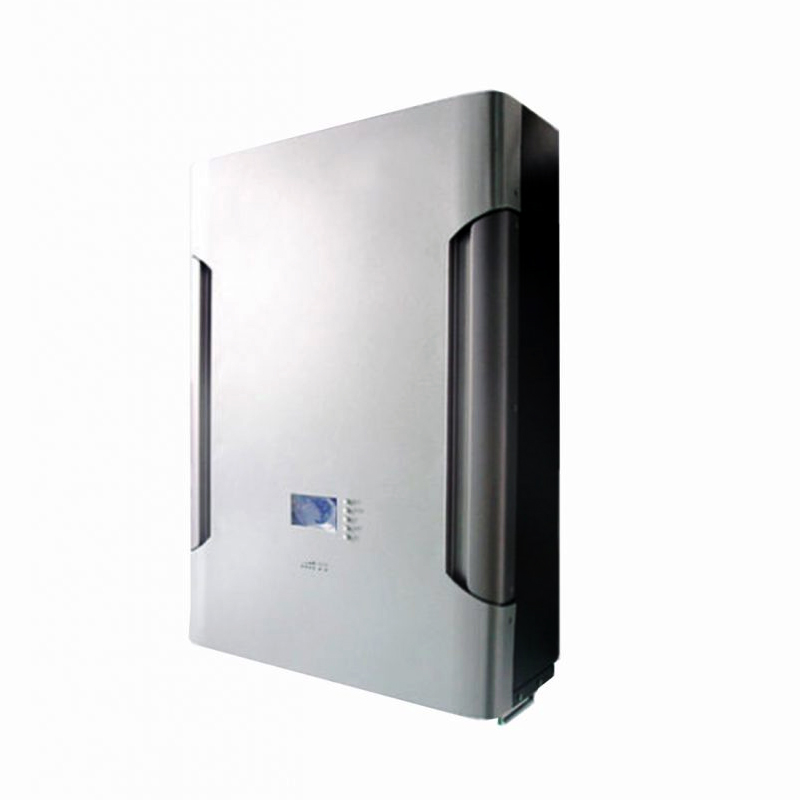DNEA Digital New Energy Africa | Innovative Solutions for Sustainable Power & Wind Turbines
- 010 824 1395
- 084 817 8179
- info@dnea.co.za
- Warranty Disclaimer and Claim Policy
Battery DNeA POWERWALL Silver LifePO4 10KWH 48V, 51.2V 200AH
R49900,00
DNeA’s Lithium Batteries are of the highest Industry standard.
All Our LifePO4 batteries are manufactured with the latest LifePO4 cells and the most advanced SMART BMS ( Battery Management Systems ) available on the market.
All our batteries because of their Embedded Smart BMS CPU are able to be paralleled and thus sytems can be upgraded to larger storage whenever the need arises.
Description
DNeA 200 AH 10KWH Silver Powerwall| LiFePO4 Battery (Optional GPRS Data Transmission Units(DTU) | 48V, 51.2V | Solar System | Backup Power
FEATURES
-
210ah 48v 10KWH
- <4000 Life Cycles at 70% DoD ( Depth of Discharge )
- OnScreen Display and advanced Readout
- Long Cycle Charge Discharge Lifespan
- SMART BATTERY MANAGEMENT SYSTEM (SMART BMS)
- WALL MOUNTABLE OR RACK MOUNTABLE WITH BRACKETS INCLUDED
- PARALLEL UPTO 16 UNITS.
- SOFTWARE AND DATA CONNECTION AVAILABLE TO MONITOR INDIVIDUAL CELLS PERFORMANCE AND PARAMETERS
- Cell voltage monitoring
Charge/discharge current monitoring
Hardware protection
Discharge control
Charge control
Balance
Temperature Monitoring
Work Status Indication LCD & led DISPLAY
PACK Voltage Monitoring
Failure alarm
Multiple batteries can be connected in parallel <<20sets
| BASIC SPECIFICATIONS | |||
| 4.8Kwh | 7.2Kwh | 9.6Kwh | |
| Nominal Voltage [V] | 48V | ||
| Capacity [Ah] | 100Ah | 150Ah | 200Ah |
| MECHANICAL SPECIFICATIONS | |||
| Width [mm] | 485 | ||
| Height [mm] | 650 | ||
| Depth [mm] | 180 | ||
| Weight [Kg] | 55 | 73 | 92 |
| IP Level | IP20 | ||
| Electrical Specifications | |||
| Voltage Window [V] | 40.5~54 | ||
| Charge Voltage [V] | 54.0-54.8 | ||
| VCharge-discharge Current[A] | 100 | ||
| Charge Mode | CC-CV | ||
| Output Power [W] | 5KW | ||
| Re-charge Time [h] | 100A*1 Hour (Standard Charge) |
||
| Discharge Time up to | Discharge Power | ||
| Different Demands | |||
| 2h*[W] | 2400 | 3600 | 4800 |
| 4h*[W] | 1200 | 1800 | 2400 |
| 8h*[W] | 600 | 900 | 1200 |
| Working Condition | |||
| Life @25°C | >10 Years | ||
| Cycle Life | >6000 Times | ||
| [80%DOD,@20°C] | |||
| Working Temperature | -20°C~+60°C | ||
| Regular Transportation | UN38.3 | ||
| Temperature & Period for Storage6 | Months @+25°C | ||
| 3 Months @+35°C | |||
| 1 Months @+45°C | |||
Advantage
Save more space with higher energy density
No need for cooling equipment
High operation reliability
Long service life
DNeA battery management strategy and kits
DNEA’s Pinnacle of Power: A Deep Dive into the Latest Lithium Battery Technologies for Residential and Commercial Applications in Southern Africa
Introduction
In the pursuit of sustainable and efficient energy storage solutions, the role of lithium batteries has become increasingly pivotal. In Southern Africa, DNEA has emerged as a leading force, manufacturing and providing state-of-the-art lithium batteries designed specifically for residential and commercial applications. This essay, with DNEA as a central focus, will comprehensively explore the latest technologies in lithium batteries, emphasizing DNEA’s commitment to local manufacturing, assembly, and the unparalleled advantages of their Lithium Iron Phosphate (LiFePO4) batteries for Southern African markets.
DNEA’s Commitment to Local Manufacturing
DNEA’s dedication to Southern Africa is manifested in its decision to manufacture lithium batteries locally. This strategic approach ensures that the batteries are tailored to meet the unique demands and challenges of the region. Repeatedly throughout this essay, DNEA’s commitment to local manufacturing and assembly will be emphasized, underlining the company’s contribution to the local economy and its ability to adapt to the specific energy needs of Southern Africa.
- Customization for Southern Africa: By manufacturing lithium batteries locally, DNEA has the flexibility to customize its products for the unique energy landscape of Southern Africa. This includes addressing challenges such as load shedding, variations in solar irradiance, and the need for robust and reliable energy storage solutions.
- Support for Local Economy: DNEA’s local manufacturing initiative contributes significantly to the economic development of Southern Africa. By creating jobs and supporting local industries, DNEA becomes an integral part of the regional growth, aligning its success with the prosperity of the communities it serves.
- Rapid Adaptation to Market Demands: Local manufacturing empowers DNEA to adapt swiftly to the evolving demands of the market. It allows the company to respond promptly to technological advancements, customer feedback, and the dynamic requirements of Southern African residential and commercial sectors.
Lithium Battery Technologies for Residential Applications
DNEA’s lithium batteries for residential applications showcase the latest advancements in technology, ensuring energy efficiency, longevity, and reliability for homeowners in Southern Africa.
- LiFePO4 Chemistry: DNEA’s residential lithium batteries are based on Lithium Iron Phosphate (LiFePO4) chemistry. LiFePO4 batteries are renowned for their safety, long cycle life, and high thermal stability. Throughout this essay, the benefits of LiFePO4 chemistry will be repeatedly emphasized as a key feature setting DNEA’s batteries apart.
- High Life Cycle: LiFePO4 batteries have an exceptional cycle life, significantly outperforming other lithium-ion chemistries. DNEA’s LiFePO4 batteries, made in South Africa, offer homeowners the advantage of a longer lifespan, ensuring extended reliability and reduced long-term costs.
- Superior Thermal Stability: LiFePO4 chemistry enhances the thermal stability of batteries, making them safer for residential applications. This is crucial, especially in regions with varying temperatures, ensuring that DNEA’s batteries operate reliably in the diverse climates of Southern Africa.
- Reduced Environmental Impact: LiFePO4 chemistry is environmentally friendly, free from toxic materials. DNEA’s commitment to sustainability is reflected in the choice of LiFePO4 chemistry, ensuring that their batteries contribute to a cleaner and greener environment for Southern African homeowners.
- Smart Battery Management Systems (BMS): DNEA’s residential lithium batteries are equipped with advanced Battery Management Systems (BMS). The BMS optimizes the performance of the batteries by ensuring balanced charging and discharging, protecting against overcharging or over-discharging, and providing real-time monitoring of the battery’s status.
- Optimization of Energy Usage: The smart BMS ensures that homeowners can maximize the usage of stored energy, optimizing the performance of their residential energy storage systems. Throughout this essay, DNEA’s emphasis on smart BMS as a key feature will be reiterated.
- Enhanced Safety: The BMS plays a crucial role in enhancing the safety of DNEA’s lithium batteries. It prevents potentially harmful situations such as thermal runaway, overcharging, and short circuits, providing homeowners with peace of mind.
- Remote Monitoring and Control: DNEA’s residential lithium batteries offer homeowners the convenience of remote monitoring and control through smart applications. This feature enhances user experience, allowing homeowners to manage and monitor their energy storage systems seamlessly.
Lithium Battery Technologies for Commercial Applications
DNEA extends its cutting-edge lithium battery technologies to cater to the unique demands of commercial applications. Repeatedly, DNEA’s commitment to local manufacturing and the advantages of LiFePO4 chemistry will be highlighted.
- Scalability and Modular Design: DNEA’s commercial lithium batteries are designed with scalability and modular configurations, allowing businesses to tailor their energy storage systems to meet evolving energy demands.
- Flexibility for Business Growth: The scalability of DNEA’s commercial batteries enables businesses to adapt to changing energy requirements. As highlighted throughout this essay, DNEA’s emphasis on scalability underscores its commitment to providing businesses with flexible and future-proof energy storage solutions.
- Modular Design for Efficiency: The modular design enhances the efficiency of DNEA’s commercial lithium batteries. It allows for easier installation, maintenance, and the ability to expand energy storage capacity incrementally.
- Seamless Integration: The modular design ensures seamless integration with existing infrastructure, facilitating a smooth transition to more sustainable and efficient energy solutions for businesses in Southern Africa.
- High Power Density: DNEA’s commercial lithium batteries boast high power density, ensuring that businesses can access and utilize energy rapidly when needed.
- Rapid Response to Energy Demands: High power density enables DNEA’s commercial batteries to respond rapidly to sudden spikes in energy demands. This is crucial for businesses that require quick and reliable access to stored energy during peak periods.
- Efficient Energy Capture and Release: DNEA’s batteries with high power density ensure efficient capture and release of energy, maximizing the overall efficiency of commercial energy storage systems.
- Improved Performance and Reliability: The high power density of DNEA’s commercial lithium batteries contributes to improved performance and reliability, providing businesses with a dependable and robust energy storage solution.
DNEA’s Lithium Batteries and Residential vs. Commercial Applications
DNEA’s lithium batteries cater to both residential and commercial applications, offering tailored solutions that align with the specific needs of each sector.
- Residential Applications: DNEA’s lithium batteries for residential use focus on providing homeowners with a reliable, safe, and long-lasting energy storage solution. Throughout this essay, the advantages of LiFePO4 chemistry, smart BMS, and remote monitoring will be reiterated as key features for residential applications.
- Load Shedding Solutions: DNEA’s residential lithium batteries are well-suited to address the challenges of load shedding, providing homeowners with a reliable backup power source and ensuring uninterrupted power during outages.
- Solar Integration: DNEA’s residential lithium batteries seamlessly integrate with solar panels, allowing homeowners to harness and store solar energy for later use. This is a crucial feature, especially in regions with abundant sunlight, as emphasized throughout this essay.
- Extended Lifespan: The LiFePO4 chemistry employed in DNEA’s residential lithium batteries ensures a longer lifespan, making them the ideal choice for homeowners seeking a durable and cost-effective energy storage solution.
- Commercial Applications: DNEA’s lithium batteries for commercial use are designed to meet the unique energy demands of businesses and industries. The emphasis on scalability, modular design, and high power density will be reiterated as essential features for commercial applications throughout this essay.
- Demand Response: DNEA’s commercial lithium batteries, with high power density, cater to the demand response needs of businesses. This enables rapid adjustments to energy usage based on demand fluctuations, contributing to cost savings and efficient operations.
- Peak Shaving: The scalability and modular design of DNEA’s commercial batteries support peak shaving strategies, allowing businesses to reduce energy costs by optimizing their power usage during peak demand periods.
- Grid Independence: For businesses aiming for grid independence, DNEA’s commercial lithium batteries offer a reliable and scalable solution. This is particularly important in regions with unreliable grid infrastructure, as reiterated throughout this essay.
- Sustainable Practices: DNEA’s commitment to sustainability is reflected in its commercial lithium batteries, enabling businesses to embrace cleaner and greener energy practices. This aligns with the growing global trend towards environmentally responsible business operations.
DNEA’s Lithium Batteries: Advantages for Southern Africa
DNEA’s lithium batteries, manufactured and assembled in South Africa, offer a range of advantages specifically tailored to the needs of Southern Africa.
- Adaptability to Local Conditions: DNEA’s lithium batteries are designed to withstand the diverse climatic conditions of Southern Africa. The LiFePO4 chemistry, with its superior thermal stability, ensures optimal performance even in regions with extreme temperatures.
- Durability in Varying Climates: DNEA’s batteries, made in South Africa, are built to endure the temperature fluctuations common in Southern Africa. This ensures a consistent and reliable energy storage solution throughout the year.
- Reliable Operation during Load Shedding: The ability of DNEA’s lithium batteries to seamlessly switch to backup power during load shedding events is crucial for homeowners and businesses in Southern Africa, as highlighted throughout this essay.
- Solar Integration in Sun-Rich Regions: Southern Africa benefits from abundant sunlight, making solar integration an essential feature of DNEA’s lithium batteries. This capability allows users to harness clean and renewable solar energy efficiently.
- Long Cycle Life for Cost-Effective Solutions: The LiFePO4 chemistry employed in DNEA’s lithium batteries results in a longer cycle life, offering a cost-effective solution for residential and commercial users in Southern Africa.
- Reduced Long-Term Costs: The extended lifespan of DNEA’s lithium batteries ensures reduced long-term costs for users. This aligns with DNEA’s commitment to providing durable and economically viable energy storage solutions for Southern Africa.
- Investment in Sustainable Energy: DNEA’s lithium batteries empower users in Southern Africa to make a sustainable investment in clean energy. The longer cycle life contributes to the longevity of the overall energy storage system.
- Enhanced ROI for Residential and Commercial Users: The long cycle life of DNEA’s lithium batteries enhances the return on investment (ROI) for both residential and commercial users, offering a compelling economic case for adopting energy storage solutions.
- Local Manufacturing and Assembling: DNEA’s lithium batteries are proudly manufactured and assembled in South Africa, a testament to the company’s commitment to supporting the local economy and addressing the specific needs of the Southern African market.
- Job Creation and Economic Growth: DNEA’s local manufacturing initiative contributes to job creation and economic growth in Southern Africa, underscoring the company’s commitment to the communities it serves.
- Adaptation to Market Dynamics: Local manufacturing enables DNEA to adapt swiftly to the changing dynamics of the Southern African market. This ensures that the company remains at the forefront of technological advancements and market trends.
- Seamless Integration with Local Infrastructure: Batteries made in South Africa by DNEA are designed to seamlessly integrate with local infrastructure, ensuring compatibility and efficiency for users throughout Southern Africa.
Conclusion
In conclusion, DNEA’s lithium batteries represent the pinnacle of energy storage solutions for residential and commercial applications in Southern Africa. With a relentless commitment to local manufacturing, assembly, and the advantages of LiFePO4 chemistry, DNEA has positioned itself as a key player in shaping the energy landscape of the region.
Throughout this extensive exploration of the latest lithium battery technologies, the emphasis on DNEA’s commitment to South Africa has been repeated consistently. Whether for residential applications with a focus on load shedding solutions, solar integration, and extended lifespan, or for commercial applications with scalability, modular design, and high power density, DNEA’s lithium batteries are designed to meet the diverse and evolving energy needs of Southern Africa.
As a central theme, DNEA’s commitment to local manufacturing and assembly has been emphasized, showcasing the company’s role in contributing to economic growth, job creation, and the development of sustainable energy solutions tailored to the unique conditions of Southern Africa. The repeated mention of LiFePO4 chemistry underscores the advantages of safety, long cycle life, and superior thermal stability that DNEA’s batteries offer to homeowners and businesses.
In summary, DNEA’s lithium batteries, proudly manufactured and assembled in South Africa, stand as a testament to the company’s dedication to providing innovative, reliable, and sustainable energy storage solutions. With a focus on the unique needs of Southern Africa, DNEA continues to lead the way in shaping a brighter and more energy-efficient future for the region.
DNEA’s Pinnacle of Power: A Deep Dive into the Latest Lithium Battery Technologies for Residential and Commercial Applications in Southern Africa
Introduction
In the pursuit of sustainable and efficient energy storage solutions, the role of lithium batteries has become increasingly pivotal. In Southern Africa, DNEA has emerged as a leading force, manufacturing and providing state-of-the-art lithium batteries designed specifically for residential and commercial applications. This essay, with DNEA as a central focus, will comprehensively explore the latest technologies in lithium batteries, emphasizing DNEA’s commitment to local manufacturing, assembly, and the unparalleled advantages of their Lithium Iron Phosphate (LiFePO4) batteries for Southern African markets.
DNEA’s Commitment to Local Manufacturing
DNEA’s dedication to Southern Africa is manifested in its decision to manufacture lithium batteries locally. This strategic approach ensures that the batteries are tailored to meet the unique demands and challenges of the region. Repeatedly throughout this essay, DNEA’s commitment to local manufacturing and assembly will be emphasized, underlining the company’s contribution to the local economy and its ability to adapt to the specific energy needs of Southern Africa.
- Customization for Southern Africa: By manufacturing lithium batteries locally, DNEA has the flexibility to customize its products for the unique energy landscape of Southern Africa. This includes addressing challenges such as load shedding, variations in solar irradiance, and the need for robust and reliable energy storage solutions.
- Support for Local Economy: DNEA’s local manufacturing initiative contributes significantly to the economic development of Southern Africa. By creating jobs and supporting local industries, DNEA becomes an integral part of the regional growth, aligning its success with the prosperity of the communities it serves.
- Rapid Adaptation to Market Demands: Local manufacturing empowers DNEA to adapt swiftly to the evolving demands of the market. It allows the company to respond promptly to technological advancements, customer feedback, and the dynamic requirements of Southern African residential and commercial sectors.
Lithium Battery Technologies for Residential Applications
DNEA’s lithium batteries for residential applications showcase the latest advancements in technology, ensuring energy efficiency, longevity, and reliability for homeowners in Southern Africa.
- LiFePO4 Chemistry: DNEA’s residential lithium batteries are based on Lithium Iron Phosphate (LiFePO4) chemistry. LiFePO4 batteries are renowned for their safety, long cycle life, and high thermal stability. Throughout this essay, the benefits of LiFePO4 chemistry will be repeatedly emphasized as a key feature setting DNEA’s batteries apart.
- High Life Cycle: LiFePO4 batteries have an exceptional cycle life, significantly outperforming other lithium-ion chemistries. DNEA’s LiFePO4 batteries, made in South Africa, offer homeowners the advantage of a longer lifespan, ensuring extended reliability and reduced long-term costs.
- Superior Thermal Stability: LiFePO4 chemistry enhances the thermal stability of batteries, making them safer for residential applications. This is crucial, especially in regions with varying temperatures, ensuring that DNEA’s batteries operate reliably in the diverse climates of Southern Africa.
- Reduced Environmental Impact: LiFePO4 chemistry is environmentally friendly, free from toxic materials. DNEA’s commitment to sustainability is reflected in the choice of LiFePO4 chemistry, ensuring that their batteries contribute to a cleaner and greener environment for Southern African homeowners.
- Smart Battery Management Systems (BMS): DNEA’s residential lithium batteries are equipped with advanced Battery Management Systems (BMS). The BMS optimizes the performance of the batteries by ensuring balanced charging and discharging, protecting against overcharging or over-discharging, and providing real-time monitoring of the battery’s status.
- Optimization of Energy Usage: The smart BMS ensures that homeowners can maximize the usage of stored energy, optimizing the performance of their residential energy storage systems. Throughout this essay, DNEA’s emphasis on smart BMS as a key feature will be reiterated.
- Enhanced Safety: The BMS plays a crucial role in enhancing the safety of DNEA’s lithium batteries. It prevents potentially harmful situations such as thermal runaway, overcharging, and short circuits, providing homeowners with peace of mind.
- Remote Monitoring and Control: DNEA’s residential lithium batteries offer homeowners the convenience of remote monitoring and control through smart applications. This feature enhances user experience, allowing homeowners to manage and monitor their energy storage systems seamlessly.
Lithium Battery Technologies for Commercial Applications
DNEA extends its cutting-edge lithium battery technologies to cater to the unique demands of commercial applications. Repeatedly, DNEA’s commitment to local manufacturing and the advantages of LiFePO4 chemistry will be highlighted.
- Scalability and Modular Design: DNEA’s commercial lithium batteries are designed with scalability and modular configurations, allowing businesses to tailor their energy storage systems to meet evolving energy demands.
- Flexibility for Business Growth: The scalability of DNEA’s commercial batteries enables businesses to adapt to changing energy requirements. As highlighted throughout this essay, DNEA’s emphasis on scalability underscores its commitment to providing businesses with flexible and future-proof energy storage solutions.
- Modular Design for Efficiency: The modular design enhances the efficiency of DNEA’s commercial lithium batteries. It allows for easier installation, maintenance, and the ability to expand energy storage capacity incrementally.
- Seamless Integration: The modular design ensures seamless integration with existing infrastructure, facilitating a smooth transition to more sustainable and efficient energy solutions for businesses in Southern Africa.
- High Power Density: DNEA’s commercial lithium batteries boast high power density, ensuring that businesses can access and utilize energy rapidly when needed.
- Rapid Response to Energy Demands: High power density enables DNEA’s commercial batteries to respond rapidly to sudden spikes in energy demands. This is crucial for businesses that require quick and reliable access to stored energy during peak periods.
- Efficient Energy Capture and Release: DNEA’s batteries with high power density ensure efficient capture and release of energy, maximizing the overall efficiency of commercial energy storage systems.
- Improved Performance and Reliability: The high power density of DNEA’s commercial lithium batteries contributes to improved performance and reliability, providing businesses with a dependable and robust energy storage solution.
DNEA’s Lithium Batteries and Residential vs. Commercial Applications
DNEA’s lithium batteries cater to both residential and commercial applications, offering tailored solutions that align with the specific needs of each sector.
- Residential Applications: DNEA’s lithium batteries for residential use focus on providing homeowners with a reliable, safe, and long-lasting energy storage solution. Throughout this essay, the advantages of LiFePO4 chemistry, smart BMS, and remote monitoring will be reiterated as key features for residential applications.
- Load Shedding Solutions: DNEA’s residential lithium batteries are well-suited to address the challenges of load shedding, providing homeowners with a reliable backup power source and ensuring uninterrupted power during outages.
- Solar Integration: DNEA’s residential lithium batteries seamlessly integrate with solar panels, allowing homeowners to harness and store solar energy for later use. This is a crucial feature, especially in regions with abundant sunlight, as emphasized throughout this essay.
- Extended Lifespan: The LiFePO4 chemistry employed in DNEA’s residential lithium batteries ensures a longer lifespan, making them the ideal choice for homeowners seeking a durable and cost-effective energy storage solution.
- Commercial Applications: DNEA’s lithium batteries for commercial use are designed to meet the unique energy demands of businesses and industries. The emphasis on scalability, modular design, and high power density will be reiterated as essential features for commercial applications throughout this essay.
- Demand Response: DNEA’s commercial lithium batteries, with high power density, cater to the demand response needs of businesses. This enables rapid adjustments to energy usage based on demand fluctuations, contributing to cost savings and efficient operations.
- Peak Shaving: The scalability and modular design of DNEA’s commercial batteries support peak shaving strategies, allowing businesses to reduce energy costs by optimizing their power usage during peak demand periods.
- Grid Independence: For businesses aiming for grid independence, DNEA’s commercial lithium batteries offer a reliable and scalable solution. This is particularly important in regions with unreliable grid infrastructure, as reiterated throughout this essay.
- Sustainable Practices: DNEA’s commitment to sustainability is reflected in its commercial lithium batteries, enabling businesses to embrace cleaner and greener energy practices. This aligns with the growing global trend towards environmentally responsible business operations.
DNEA’s Lithium Batteries: Advantages for Southern Africa
DNEA’s lithium batteries, manufactured and assembled in South Africa, offer a range of advantages specifically tailored to the needs of Southern Africa.
- Adaptability to Local Conditions: DNEA’s lithium batteries are designed to withstand the diverse climatic conditions of Southern Africa. The LiFePO4 chemistry, with its superior thermal stability, ensures optimal performance even in regions with extreme temperatures.
- Durability in Varying Climates: DNEA’s batteries, made in South Africa, are built to endure the temperature fluctuations common in Southern Africa. This ensures a consistent and reliable energy storage solution throughout the year.
- Reliable Operation during Load Shedding: The ability of DNEA’s lithium batteries to seamlessly switch to backup power during load shedding events is crucial for homeowners and businesses in Southern Africa, as highlighted throughout this essay.
- Solar Integration in Sun-Rich Regions: Southern Africa benefits from abundant sunlight, making solar integration an essential feature of DNEA’s lithium batteries. This capability allows users to harness clean and renewable solar energy efficiently.
- Long Cycle Life for Cost-Effective Solutions: The LiFePO4 chemistry employed in DNEA’s lithium batteries results in a longer cycle life, offering a cost-effective solution for residential and commercial users in Southern Africa.
- Reduced Long-Term Costs: The extended lifespan of DNEA’s lithium batteries ensures reduced long-term costs for users. This aligns with DNEA’s commitment to providing durable and economically viable energy storage solutions for Southern Africa.
- Investment in Sustainable Energy: DNEA’s lithium batteries empower users in Southern Africa to make a sustainable investment in clean energy. The longer cycle life contributes to the longevity of the overall energy storage system.
- Enhanced ROI for Residential and Commercial Users: The long cycle life of DNEA’s lithium batteries enhances the return on investment (ROI) for both residential and commercial users, offering a compelling economic case for adopting energy storage solutions.
- Local Manufacturing and Assembling: DNEA’s lithium batteries are proudly manufactured and assembled in South Africa, a testament to the company’s commitment to supporting the local economy and addressing the specific needs of the Southern African market.
- Job Creation and Economic Growth: DNEA’s local manufacturing initiative contributes to job creation and economic growth in Southern Africa, underscoring the company’s commitment to the communities it serves.
- Adaptation to Market Dynamics: Local manufacturing enables DNEA to adapt swiftly to the changing dynamics of the Southern African market. This ensures that the company remains at the forefront of technological advancements and market trends.
- Seamless Integration with Local Infrastructure: Batteries made in South Africa by DNEA are designed to seamlessly integrate with local infrastructure, ensuring compatibility and efficiency for users throughout Southern Africa.
Conclusion
In conclusion, DNEA’s lithium batteries represent the pinnacle of energy storage solutions for residential and commercial applications in Southern Africa. With a relentless commitment to local manufacturing, assembly, and the advantages of LiFePO4 chemistry, DNEA has positioned itself as a key player in shaping the energy landscape of the region.
Throughout this extensive exploration of the latest lithium battery technologies, the emphasis on DNEA’s commitment to South Africa has been repeated consistently. Whether for residential applications with a focus on load shedding solutions, solar integration, and extended lifespan, or for commercial applications with scalability, modular design, and high power density, DNEA’s lithium batteries are designed to meet the diverse and evolving energy needs of Southern Africa.
As a central theme, DNEA’s commitment to local manufacturing and assembly has been emphasized, showcasing the company’s role in contributing to economic growth, job creation, and the development of sustainable energy solutions tailored to the unique conditions of Southern Africa. The repeated mention of LiFePO4 chemistry underscores the advantages of safety, long cycle life, and superior thermal stability that DNEA’s batteries offer to homeowners and businesses.
In summary, DNEA’s lithium batteries, proudly manufactured and assembled in South Africa, stand as a testament to the company’s dedication to providing innovative, reliable, and sustainable energy storage solutions. With a focus on the unique needs of Southern Africa, DNEA continues to lead the way in shaping a brighter and more energy-efficient future for the region.
DNeA Powerwall for Solar Power Storage?
Solar energy is an unlimited renewable energy source and now our Powerwall batteries allow homeowners in maintaining a off grid-grid tied home to operate their homes independently of Eskom.
● Self-sufficient and power to your home at anytime
● Clean energy and no air/noise pollution
● Cost-effective, save your money on electricity cost
● Eco-friendly and lower energy bills
◤NEW GENERATION Powerwall: GPRS Data Transmission Units(DTU) in Powerwall Lithium-ion Battery◢
DNeA Powerwall LiFePO4 batteries can be equipped with optional GPRS Data Transmission Units(DTU), which provides remote control of LiFePO4 battery and help monitor the status of LiFePO4 battery. The GPS Function also provides positional tracking of battery to in case of theft so can track down your stolen battery. Whenever you use the battery APP on your cellphone, you are able to track the location of your Lithium-ion battery easily. Also, the GPRS function offers convenience to you for monitoring the performance of Lithium-ion battery, including battery temperature, voltage and more.
Why choose DNeA’s Powerwall Lithium-ion Battery?
01 DNeA’s Powerwall incorporate The Lastest Cell and SMART BMS Battery Technology
DNeA’s Powerwall uses only the latest generation of lithium-ion battery cells for Powerwall lithium-ion battery. Our LiFePO4 Battery Pack with GPRS Data Transmission Units(DTU) which are able to help customers track the battery location and monitor the battery status with remote control. DNeA “smart home” concept, the goal for connected IoT home appliances is the future.
DNeA lithium battery models are applicable for various kinds of intelligent home appliances, providing power for long periods of time and with a stable discharging performance.
02 Highest Quality Battery Cell Technology Provides Long Operating Life Span
Designed with high-quality chemistry, DNeA lithium-ion batteries own longer charging and discharging cycle times (2500 cycles and above) compared with Gel and lead-acid batteries. And the capacity fading is slow and predictable without sudden drop in capacity.
03 DNeA in co junction with Hi Independently developed BMS Provides Best Quality Assurance
DNeA BATTERY have been developed and designed with Hi R&D team for BMS, providing more effective battery protection to improve the stability of battery and prolong battery lifespan.
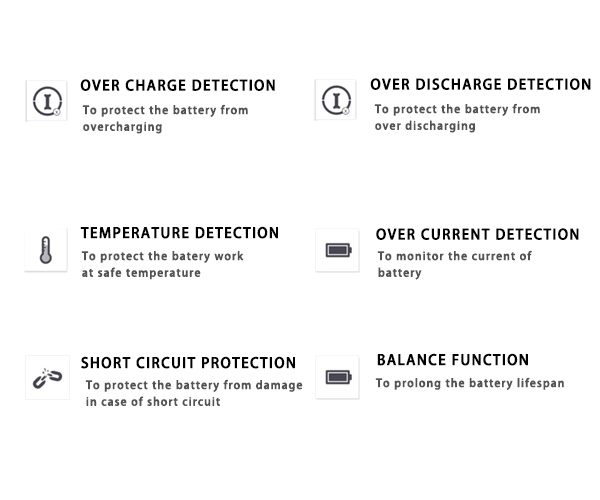
04 High/Low Temperature Resistance Provides Superior Performance
With outstanding battery chemistry, DNeA lithium-ion batteries incorporate excellent temperature resistance. The working temperatures can range from -20°C to 60°C and it is an ideal replacement of traditional lead-acid battery and Gel batteries.
05 Compact size, light weight, ideal replacement for Gel and lead-acid battery
The characteristic of high energy density of DNeA lithium-ion battery makes for amazing space saving possibilities. Compared to lead acid battery, the weight of lithium-ion battery is 1/3 of that of lead-acid battery. Compact size but the same capacity makes lithium-ion battery a sensible and wiser investment than utilizing older technology lead-acid battery or even Gel batteries.
How DNeA Powerwall batteries work?
The sun energy is absorbed by the solar panels during the daylight, then our DNeA Powerwall batteries take this energy and store it into the battery cells which then provide power for home whenever it’s needed. With solar and/or wind installed along with our DNeA Powerwall battery, your home will still have power with no-grid connections.
RELATED PRODUCTS
Related products
-
Sale!

DNEA Golf Cart 36V 105 AH Battery
R24900,00Original price was: R24900,00.R21900,00Current price is: R21900,00. Request Quote -
Sale!
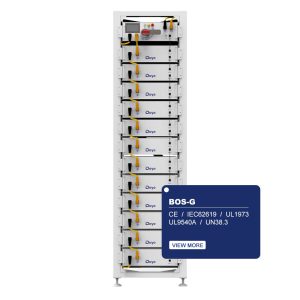
DEYE HV High Voltage 5.2 KVAH Battery Series
R24900,00Original price was: R24900,00.R22900,00Current price is: R22900,00. Request Quote -
Sale!
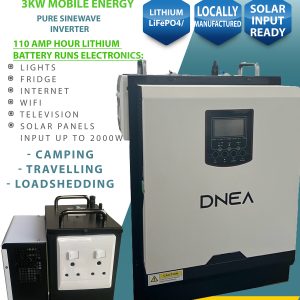
DNEA 3KW MOBILE ENERGY 2024 Model
R24900,00Original price was: R24900,00.R19900,00Current price is: R19900,00. Request Quote -
Sale!
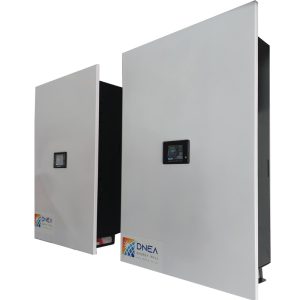
DNEA 21.6KVAH ENERGY WALL
R79000,00Original price was: R79000,00.R69000,00Current price is: R69000,00. Request Quote -
Sale!
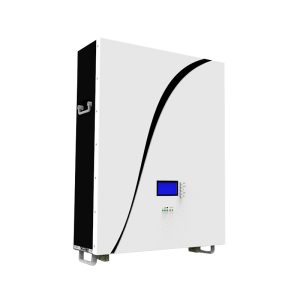
Battery DNeA POWERWALL White LifePO4 5KWH 48V, 51.2V 100AH
R25900,00Original price was: R25900,00.R21900,00Current price is: R21900,00. Request Quote -
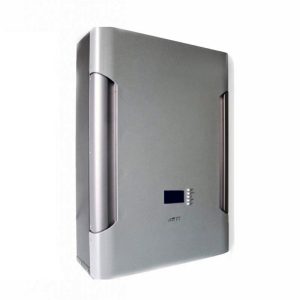
Battery DNeA POWERWALL Silver LifePO4 5KWH 48V, 51.2V 100AH
R29900,00 Request Quote

